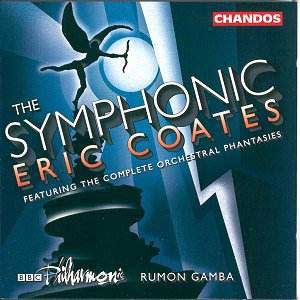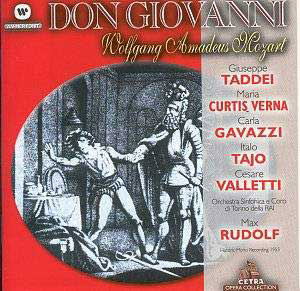 Composer: Eric Coates
Composer: Eric Coates
Works: Cinderella – A Phantasy (1930), The Selfish Giant – A Phantasy (1925), The Three Bears – A Phantasy (1927), Miniature Suite (1911), London (London Everywhere) – Suite (1933), Joyous Youth – Suite (1922), The Dambusters – A March (1954)
Performers: BBC Philharmonic Orchestra, Rumon Gamba (conductor)
Recording: 9th & 10th October 2001, Studio 7 New Broadcasting House, Manchester
Label: CHANDOS CHAN 9869
The oeuvre of Eric Coates occupies a distinct space in the realm of British light music, often overshadowed by the gravitas of his contemporaries. This recording, aptly titled The Symphonic Eric Coates, encapsulates his flair for melody and orchestration, revealing a composer whose works merit serious consideration beyond the mere classification of ‘light.’ The compilation of orchestral fantasies, suites, and a march provides ample opportunity to explore Coates’ artistic evolution and engagement with both popular and classical idioms.
Rumon Gamba leads the BBC Philharmonic Orchestra with an evident appreciation for the stylistic nuances inherent in Coates’ music. The performance breathes life into the Miniature Suite, a work dedicated to Sir Henry Wood, whose premiere Coates himself performed as principal violist. Here, the final movement, Scène du Bal, emerges as a highlight, characterized by its graceful melodies and deft orchestration. Gamba’s interpretation showcases the movement’s lyrical beauty, allowing the music to unfold with a natural ease that captures its essence. The sound quality is pristine, with Chandos’ engineering ensuring that the delicate strings and vibrant woodwinds are well-balanced, allowing the intricate textures of Coates’ orchestration to shine.
The Dambusters March stands as a cornerstone of British film music, and this recording offers a fresh perspective on a piece that is often taken for granted. Gamba’s tempo is brisk yet respectful, preserving the march’s inherent drama without succumbing to bombast. The orchestration is executed with precision, and the brass section delivers a rousing rendition that recalls its historical context with vigor. While it is well documented that Leighton Lucas contributed significantly to the score, Gamba’s interpretation honors Coates’ craftsmanship, bringing forth a march that is both patriotic and artfully constructed.
Coates’ London Suite, originally titled London Everywhere, is a vivid musical tableau that encapsulates the city’s spirit. The movement depicting Covent Garden, rendered as a Tarantella, is an exemplary use of orchestral color and rhythmic vitality. Gamba’s choices here—particularly in the handling of the woodwinds—invoke the bustling market atmosphere with infectious energy. The subsequent nocturne captures a moment of introspection, where the use of French horns to evoke Westminster chimes is masterfully executed, creating a serene soundscape that contrasts effectively with the lively opening.
The three orchestral fantasies—Cinderella, The Selfish Giant, and The Three Bears—demonstrate Coates’ adeptness at storytelling through music. Each piece unfolds with a narrative clarity that reflects his sublime gift for melody. Gamba’s conducting ensures that the orchestral parts are woven together seamlessly, allowing thematic motifs to emerge and interact, showcasing Coates’ skill in thematic development. The playful character of The Three Bears is particularly charming, resonating with familial warmth that adds depth to the performance.
This recording does not merely serve as a retrospective of Coates’ works but also as a testament to the enduring appeal of his music. The BBC Philharmonic Orchestra under Gamba’s direction brings a level of enthusiasm and commitment that is palpable, amplifying the charm and accessibility of Coates’ compositions. Their performance resonates with both the light-heartedness and sophistication that characterize the best of British light music.
Eric Coates emerges not just as a purveyor of tuneful melodies but as a composer of substantial craftsmanship deserving of recognition in the concert repertoire. This Chandos recording serves as a valuable introduction to his work, offering a rich tapestry of sound that is both engaging and enjoyable. The disc not only highlights Coates’ melodies and orchestrational finesse but also reaffirms the notion that light music can possess depth and artistry, inviting listeners to revisit the joys of a composer who, despite historical derision, continues to resonate in the hearts of many.



